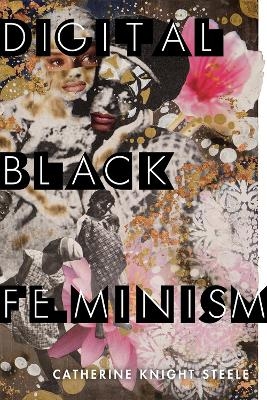
Digital Black Feminism
Seiten
2021
New York University Press (Verlag)
978-1-4798-0838-0 (ISBN)
New York University Press (Verlag)
978-1-4798-0838-0 (ISBN)
Traces the longstanding relationship between technology and Black feminist thought
Black women are at the forefront of some of this century's most important discussions about technology: trolling, online harassment, algorithmic bias, and influencer culture. But, Catherine Knight Steele argues that Black women's relationship to technology began long before the advent of Twitter or Instagram. To truly "listen to Black women," Steele points to the history of Black feminist technoculture in the United States and its ability to decenter white supremacy and patriarchy in a conversation about the future of technology. Using the virtual beauty shop as a metaphor, Digital Black Feminism walks readers through the technical skill, communicative expertise, and entrepreneurial acumen of Black women's labor-born of survival strategies and economic necessity-both on and offline.
Positioning Black women at the center of our discourse about the past, present, and future of technology, Steele offers a through-line from the writing of early twentieth-century Black women to the bloggers and social media mavens of the twenty-first century. She makes connections among the letters, news articles, and essays of Black feminist writers of the past and a digital archive of blog posts, tweets, and Instagram stories of some of the most well-known Black feminist writers of our time. Linking narratives and existing literature about Black women's technology use in the nineteenth, twentieth, and twenty-first century, Digital Black Feminism traverses the bounds between historical and archival analysis and empirical internet studies, forcing a reconciliation between fields and methods that are not always in conversation. As the work of Black feminist writers now reaches its widest audience online, Steele offers both hopefulness and caution on the implications of Black feminism becoming a digital product.
Black women are at the forefront of some of this century's most important discussions about technology: trolling, online harassment, algorithmic bias, and influencer culture. But, Catherine Knight Steele argues that Black women's relationship to technology began long before the advent of Twitter or Instagram. To truly "listen to Black women," Steele points to the history of Black feminist technoculture in the United States and its ability to decenter white supremacy and patriarchy in a conversation about the future of technology. Using the virtual beauty shop as a metaphor, Digital Black Feminism walks readers through the technical skill, communicative expertise, and entrepreneurial acumen of Black women's labor-born of survival strategies and economic necessity-both on and offline.
Positioning Black women at the center of our discourse about the past, present, and future of technology, Steele offers a through-line from the writing of early twentieth-century Black women to the bloggers and social media mavens of the twenty-first century. She makes connections among the letters, news articles, and essays of Black feminist writers of the past and a digital archive of blog posts, tweets, and Instagram stories of some of the most well-known Black feminist writers of our time. Linking narratives and existing literature about Black women's technology use in the nineteenth, twentieth, and twenty-first century, Digital Black Feminism traverses the bounds between historical and archival analysis and empirical internet studies, forcing a reconciliation between fields and methods that are not always in conversation. As the work of Black feminist writers now reaches its widest audience online, Steele offers both hopefulness and caution on the implications of Black feminism becoming a digital product.
Catherine Knight Steele is Assistant Professor of Communication at the University of Maryland, College Park, with affiliate appointments in the American Studies department, the Maryland Institute for Technology in the Humanities, and the Harriet Tubman Department of Women, Gender, and Sexuality Studies.
| Erscheinungsdatum | 18.10.2021 |
|---|---|
| Reihe/Serie | Critical Cultural Communication |
| Zusatzinfo | 5 b/w illustrations |
| Verlagsort | New York |
| Sprache | englisch |
| Maße | 152 x 229 mm |
| Gewicht | 349 g |
| Themenwelt | Geschichte ► Teilgebiete der Geschichte ► Kulturgeschichte |
| Sozialwissenschaften ► Ethnologie ► Volkskunde | |
| Sozialwissenschaften ► Kommunikation / Medien ► Medienwissenschaft | |
| Sozialwissenschaften ► Soziologie ► Gender Studies | |
| ISBN-10 | 1-4798-0838-5 / 1479808385 |
| ISBN-13 | 978-1-4798-0838-0 / 9781479808380 |
| Zustand | Neuware |
| Informationen gemäß Produktsicherheitsverordnung (GPSR) | |
| Haben Sie eine Frage zum Produkt? |
Mehr entdecken
aus dem Bereich
aus dem Bereich
Die Revolution des Gemeinen Mannes
Buch | Softcover (2024)
C.H.Beck (Verlag)
CHF 16,80
vom Mittelalter bis zur Gegenwart
Buch | Softcover (2024)
C.H.Beck (Verlag)
CHF 16,80


